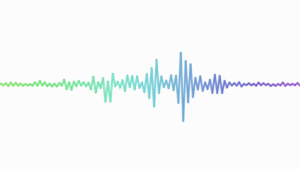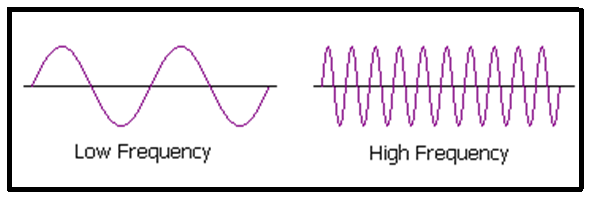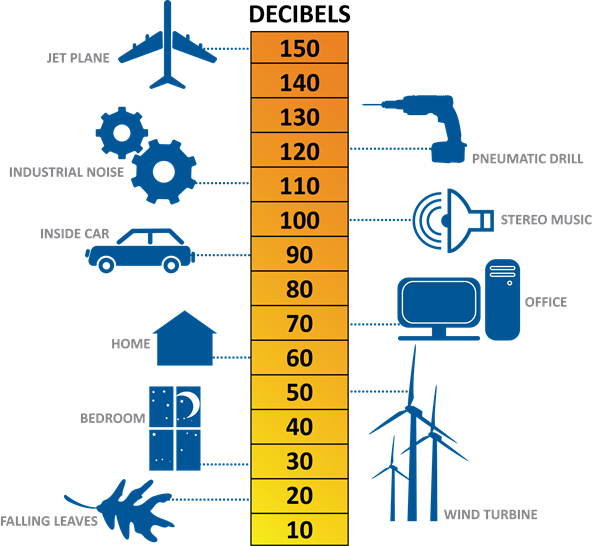What is Sound?
Sound: 
It’s almost impossible to imagine a world without it It’s probably the first thing you experience when you wake up in the morning when you hear birds chirping or your alarm clock beeping. Sound fills our days with excitement and meaning when people talk to us when we listen to music. The sound is fascinating, let’s take a closer look at how it works!
What is sound?

The sound is a type of energy made by vibrations. When an object vibrates, it causes movement in the air particles. These particles bump into the particles close to them, which makes them vibrate too causing them to bump into more air particles. This movement, called sound waves, keeps going until they run out of energy. If your ear is within range of the vibrations, you hear the sound.
When the vibrations are fast, you hear a high note. When the vibrations are slow, it creates a low note. The sound waves in the diagram show the different frequencies for high and low notes.

What are the types of sound?
There are two types of sound, Audible and Inaudible.
- Inaudible sounds are sounds that the human ear cannot detect. The human ear hears frequencies between 20 Hz and 20 KHz.
- Sounds that are below 20 Hz frequency are called Infrasonic Sounds. Elephant communicate in sound waves in lower frequencies that human ears cannot detect
- Sounds that are above 20 KHz frequency are called Ultrasonic Sounds. Bats, whales, dolphins, dogs use ultrasound for echolocation (to find either their location or to find or locate food, prey, or enemies and danger) and navigation.
- A cat can hear high frequency sounds two octaves higher than humans.
Does sound need a medium to travel?
Yes, sound needs a medium to travel. It can travel through any medium, but it cannot travel through a vacuum. The sound is absent in outer space, as there is no medium to carry sound vibrations.
Robert Boyle’s classic experiment:
The first person to discover that sound needs a medium was a brilliant English scientist known as Robert Boyle
He carried out a classic experiment that you’ve probably done yourself in school:

He set an alarm clock ringing, placed it inside a large glass jar, and while the clock was still ringing, sucked all the air out with a pump.
As the air gradually disappeared, the sound died out because there was nothing left in the jar for it to travel through.
- Put a ringing alarm clock inside a large glass case with a valve on top. Close the valve so no air can get in.
- You can easily hear the clock ringing because the sound travels through the air in the case and the glass, before continuing to your ears.
- Switch on the vacuum pump and remove the air from the case. As the case empties, the ringing clock sounds fainter and fainter until you can barely hear it at all. With little or no air in the case, there’s nothing to carry the sound to your ears.
- Switch off the pump. With the clock still ringing, open the valve on top of the case. As air rushes back in, you’ll hear the clock ringing once again.
Why? Because with air once again inside the case, there’s a medium to carry the sound waves from the ringing clock to your ears.
What is Noise?
All sounds are alike in this way: they’re just vibrations. There’s no physical difference between a noise and a pleasant sound. What is different is how you as a listener respond to these sounds. Noise is simply any sound that you don’t want to hear.
Imagine that you’re sitting and watching TV when someone comes up to you and Starts talking. Which of these sounds—the TV or their voice—are noise?It depends on which one you want to hear. If you’d prefer to have a conversation with this Person, it’s the TV that’s noise. If you’re focused on the show, it could be their Voice that is the noise.
Both of them are creating sound vibrations; your brain is able to determine which vibrations you want to hear and which one you don’t.
Effects of sounds on a human :
Psychologically:
It changes our emotions and our moods. Music will do that, of course. I’m thinking of one of my favorite songs, It always makes me feel calm and happy.
So music changes our mood. However, it’s not the only sound that does that. There are plenty of sounds in nature that do. Birdsong, for example, makes us feel relaxed and reassured; Sound can affect our emotional state quite deeply.
Cognitively:
Sound affects us cognitively. How well you work is very dependent on the sound around you. Your kids may tell you that they do their homework much better with loud music playing. It’s not true, unfortunately. They may do their homework for longer so you may get a better result, but they’re not doing more work per minute.
The most distracting sound of all is the human voice. If somebody’s speaking next to you, it’s very difficult to block out that sound. We have no earlids and distracting human conversation hugely impedes your productivity.
Sound Levels in Decibel (dB):

-
There are some devices which are used to Measure and control the sound levels, Follow us and watch this space for further updates.
The sound waves are vibrations; it’s the ability to readjust your senses so you can feel the music.
“Sound is the Vocabulary of Nature.
Listen to the sound of waves within you”
[ABTM id=53]


